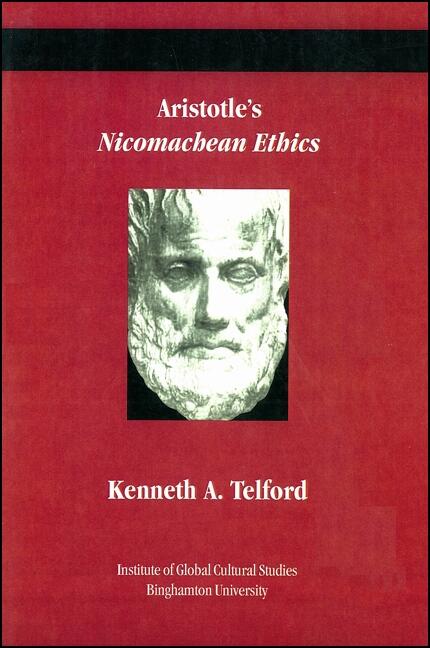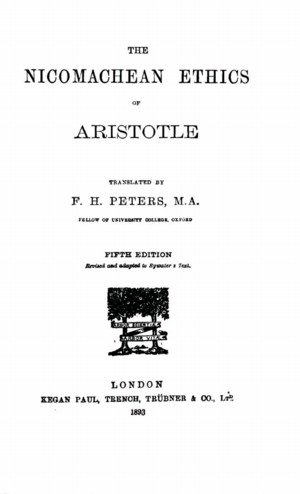Reference




OpenAI's Answer
Aristotle's Nicomachean Ethics is renowned for its rich exploration of ethical principles and moral philosophy. Here are some key aspects covered in this work:
-
Eudaimonia (Happiness or Flourishing):
- Aristotle considers eudaimonia to be the highest human good. He explores what constitutes true happiness and how it can be achieved through virtuous living.
-
Virtue Ethics:
- Aristotle distinguishes between two types of virtues: intellectual virtues (wisdom, understanding, and prudence) and moral virtues (courage, temperance, and justice). He emphasizes that virtues are habits developed through practice and living in accordance with reason.
-
The Doctrine of the Mean:
- Central to Aristotle's ethics, this doctrine suggests that virtue lies between two extremes of excess and deficiency. For instance, courage is a mean between recklessness and cowardice.
-
Moral Development and Education:
- Aristotle holds that moral virtues are acquired through habit and practice rather than through instruction. Ethical upbringing and good societal structures play a crucial role in moral development.
-
Role of Pleasure and Pain:
- Aristotle examines how pleasure and pain influence moral virtue and vice. Virtuous individuals find pleasure in acting virtuously, while vice is accompanied by a different kind of pleasure or regret.
-
Practical Wisdom (Phronesis):
- Practical wisdom is crucial for moral virtue. It's the ability to deliberate well about what is good and beneficial for oneself, considering the moral principles and particular circumstances of each situation.
-
The Importance of Friendship:
- In the Nicomachean Ethics, Aristotle devotes considerable attention to the concept of friendship. He argues that friendship is necessary for a good life and distinguishes between different types of friendships based on utility, pleasure, and virtuous character.
-
Life of Contemplation:
- Aristotle discusses the contemplative life as the highest form of life. He regards the pursuit of knowledge and philosophical contemplation as the ultimate forms of human activity.
For more detailed insights, you can refer to the following sources:
- Stanford Encyclopedia of Philosophy on Aristotle's Ethics
- Internet Encyclopedia of Philosophy on Aristotle's Ethics
- Nicomachean Ethics Overview at SparkNotes

Follow Up
Related
How did Aristotle's reception of Heraclitus influence philosophical thought?
What are the significant contributions of Aristotle mentioned in the citations?
What are some criticisms Aristotle had regarding Heraclitus's philosophical ideas?
What arguments are made regarding Heraclitus and the principle of contradiction in Aristotle?